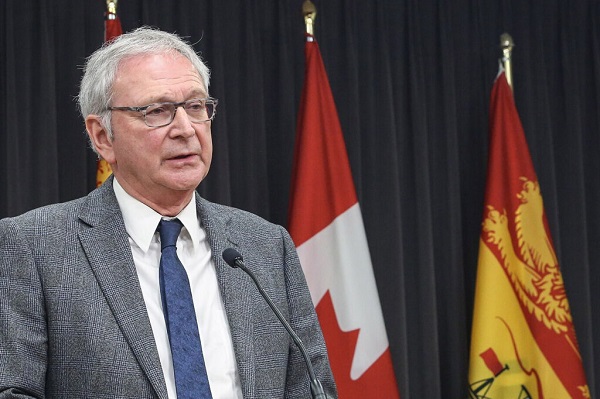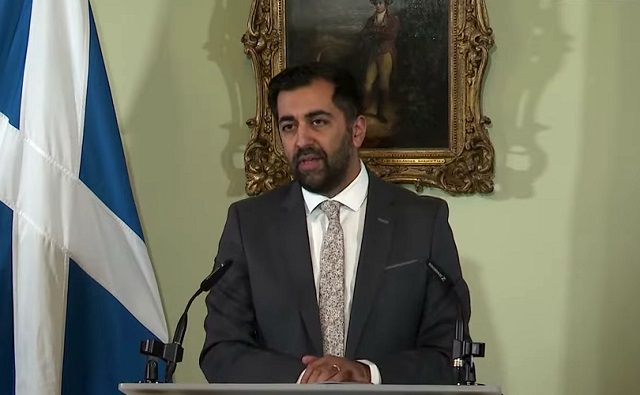Health
CACAC Enters Sprint for Final Million in Public Fundraising
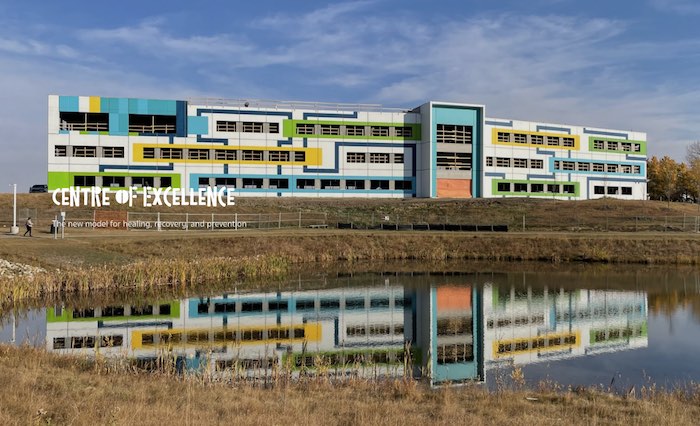
The Central Alberta Child Advocacy Centre (CACAC) has hit a major milestone in public fundraising.
The new Sheldon Kennedy Centre of Excellence (SKCOE), a project started by the CACAC, is nearly complete. The building, situated on the Main Campus of Red Deer Polytechnic (RDP), has entered the final stage of completion. Along with construction milestones, the CACAC has also hit a major fundraising milestone, having raised $11.65 million of the $12 million dollar public fundraising goal set last year.
“We stand on the cusp of something truly remarkable,” says CACAC CEO Mark Jones. “We’re witnessing what happens when a community comes together in support of vulnerable children and youths in Central Alberta. We’re asking the public to help us through this final sprint to the finish line. Become a Champion of Courage – donate today to help us create lasting change.”
The SKCOE is currently home to the CACAC, the Central Alberta Sexual Assault Support Centre, and the newly-named MNP Move Your Mood Studio. Alberta Health Services’ Mental Health Outpatient Clinic is set to move in soon to the recently-named Lindsey More Youth Mental Health and Addiction hub on the second floor, and AHS’ Step Up Step Down program will move in on floor one. The new building triples capacity for Step Up Step Down, and brings unique and much-needed mental health services to Central Alberta. The SKCOE boasts more than forty mental health therapy rooms, and the connection with RDP allows for greater research and development.
“This facility is going to make a huge impact on generations of Albertans,” says Jones. “Thanks to this generous community, we have been able to get to where we are today. With one last push, we can cross the finish line. Every donation made, even five dollars, pushes us closer to being able to build a future of hope for those who require not just our services at the CACAC, but the varied services from all of our partners in the Sheldon Kennedy Centre of Excellence.”
The CACAC has also announced that they plan to do a public Grand Opening event some time in May, and encourages people to keep an eye on their website and social media platforms to keep up to date. To learn more about the Sheldon Kennedy Centre of Excellence, and to donate, visit https://www.centralalbertacac.ca/centre-of-excellence/
About CACAC: The Central Alberta Child Advocacy Centre is a not-for-profit organization rooted in the protection and recovery of today’s most innocent and vulnerable – our children. The Centre is comprised of a collective that is driven by the courage to support children, youth, and their families affected by abuse, enabling them to build enduring strength and overcome adversity. We work in a collaborative partnership with the Alberta Children and Family Services, Alberta Health Services, Alberta Justice, Alberta Education, Red Deer Polytechnic, the Central Alberta Sexual Assault Support Centre and the RCMP. Together we harness our collective courage to provide children with supported recovery.
For more information on CACAC, please visit: centralalbertacac.ca
Health
UK pediatrician who led review of child ‘transitions’ says US medical groups ‘misleading the public’
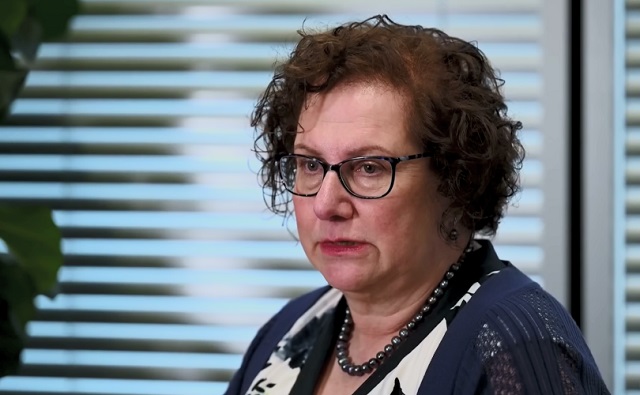
Dr. Hilary Cass, author of the Cass Review
From LifeSiteNews
The American Academy of Pediatrics’ support for surgically and chemically mutilating gender-confused children ‘is now demonstrated to be out of date by multiple systematic reviews,’ Dr. Hilary Cass told the New York Times.
The typically left-wing New York Times published an interview on Monday with consultant pediatrician Dr. Hilary Cass on her comprehensive review of so-called “gender medicine” in the United Kingdom, indicating that awareness of the damage due to surgical and chemical “transitioning” continues to spread despite the best efforts of LGBT activists.
Released in April, 366-page Cass Review was commissioned by National Health Service (NHS) England following ongoing scandals about the practices of British “gender clinics” such as the Gender Identity Development Service (GIDS), operated by the Tavistock and Portman NHS Foundation Trust. The four-year project consisted of comprehensive reviews of current research and international standards, as well as extensive interviews with gender-confused children and adults, family members, detransitioners, doctors, and activists.
It found that “gender medicine” is “built on shaky foundations” and that while such interventions require a great deal of caution, “quite the reverse happened in the field of [so-called] gender care for children,” and that “[w]hile a considerable amount of research has been published in this field, systematic evidence reviews demonstrated the poor quality of the published studies, meaning there is not a reliable evidence base upon which to make clinical decisions, or for children and their families to make informed choices.” Her findings led NHS to stop prescribing puberty blockers to children with gender confusion earlier this year.
Speaking to the Times, Cass explained that she was planning her retirement when she was first asked to tackle the project and was initially apprehensive about wading into the controversy.
“The most important concern for me is just how poor the evidence base is in this area,” she said. “Some people have questioned, ‘Did we set a higher bar for this group of young people?’ We absolutely didn’t. The real problem is that the evidence is very weak compared to many other areas of pediatric practice.”
The Times acknowledged that her “findings are in line with several European countries that have limited the treatments [sic] after scientific reviews. But in America, where nearly two dozen states have banned the care outright, medical groups have endorsed the treatments as evidence-based and necessary,” including groups the paper contacted for its latest story. Cass described American medical consensus as “out of date” on the issue.
“When I was president of the Royal College of Pediatrics and Child Health, we did some great work with the A.A.P. [American Academy of Pediatrics],” she elaborated. “They are an organization that I have enormous respect for. But I respectfully disagree with them on holding on to a position that is now demonstrated to be out of date by multiple systematic reviews.”
“It wouldn’t be too much of a problem if people were saying ‘This is clinical consensus and we’re not sure,” she added. “But what some organizations are doing is doubling down on saying the evidence is good. And I think that’s where you’re misleading the public. You need to be honest about the strength of the evidence and say what you’re going to do to improve it.”
A significant body of evidence shows that “affirming” gender confusion carries serious harms, especially when done with impressionable children who lack the mental development, emotional maturity, and life experience to consider the long-term ramifications of the decisions being pushed on them.
Studies find that more than 80% of children experiencing gender dysphoria outgrow it on their own by late adolescence, and that even full “reassignment” surgery often fails to resolve gender-confused individuals’ heightened tendency to engage in self-harm and suicide — and may even exacerbate it, including by reinforcing their confusion and neglecting the actual root causes of their mental strife.
Yet while mounting evidence against youth “gender transitions” is prompting European nations such as the United Kingdom and France, which are normally to the left of America, to move away from the practice, in America, the medical establishment and the Biden administration continues to dig in their heels, despite Biden’s own Substance Abuse & Mental Health Services Administration (SAMHSA) releasing a since-deleted report last year acknowledging that “lesbian, gay, and bisexual adults are more likely than straight adults to use substances, experience mental health conditions including major depressive episodes, and experience serious thoughts of suicide.”
The White House’s comprehensive pursuit of the transgender agenda has included reopening the military to recruits afflicted with gender dysphoria, promoting gender ideology within the military (including “diversity” and drag events on military bases), holding White House events to “affirm transgender kids,” condemning state laws against underage “transitions” as “close to sinful,” promoting underage “transitions” (potentially at taxpayer expense) as a “best practice,” and trying to force federally funded schools to let males into female athletic competitions and restrooms.
Health
South Korean president declares low birth rate a ‘national emergency,’ plans new ministry to address it

From LifeSiteNews
President Yoon Suk Yeol announced that he would ask for the parliament’s support to establish a new Ministry of Low Birth Rate Counter Planning after the country reached a new low with an average number of babies per woman of 0.72 in 2023.
South Korea’s president has declared the country’s low birth rate a “national emergency” and announced a new government ministry to address the problem.
In a televised press conference on May 9, President Yoon Suk Yeol said, “We will mobilize all of the nation’s capabilities to overcome the low birth rate, which can be considered a national emergency.”
He announced he would ask for the parliament’s support to establish a new “Ministry of Low Birth Rate Counter Planning.”
South Korea has had the lowest fertility rate in the world for years, and the average number of babies per woman dropped to a new low of 0.72 in 2023, down from 0.78 the previous year.
Despite the government’s efforts to increase the birth rate by spending over $200 billion on initiatives meant to encourage larger families, including infertility treatment, cash subsidies, and childcare services, the country’s birth rate declined for the fourth year in a row in 2023.
A Korean Construction corporation made headlines this year for offering employees $75,000 for each baby they have. “If Korea’s birth rate remains low, the country will face extinction,” Lee Joong-keun, chairman of the Booyoung Group, warned.
READ: New ‘Birthgap’ film shows how explosion in childlessness is driving population collapse
According to YouTuber Stephan Park, who grew up in South Korea and runs the YouTube channel Asian Boss, Korean men face the additional problem of being expected to own a house when they marry, which is very difficult under the country’s current economic conditions.
“There are all the societal pressures that if you get married, guys are the ones that are supposed to buy the house, to have the house ready, which is impossible to have if you are a 30-year-old guy … with the average house prices you’ll never be able to afford one in your lifetime,” Park explained.
“So that’s the most common thing we hear: ‘I cannot afford to get married,’” he added.
According to some projections, South Korea’s and multiple other Western and Asian populations are expected to be cut in half by the year 2100 if the current trends continue.
-

 Uncategorized1 day ago
Uncategorized1 day agoRCMP recruitment failure has Alberta advocacy group calling for Provincial Police Service
-
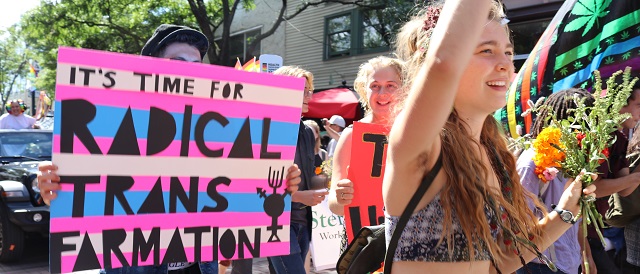
 Health1 day ago
Health1 day agoPrivate Footage Reveals Leading Medical Org’s Efforts To ‘Normalize’ Gender Ideology
-

 Alberta1 day ago
Alberta1 day agoRed Deer Hospital Lottery – Second Chance Early Bird Prize!!!
-
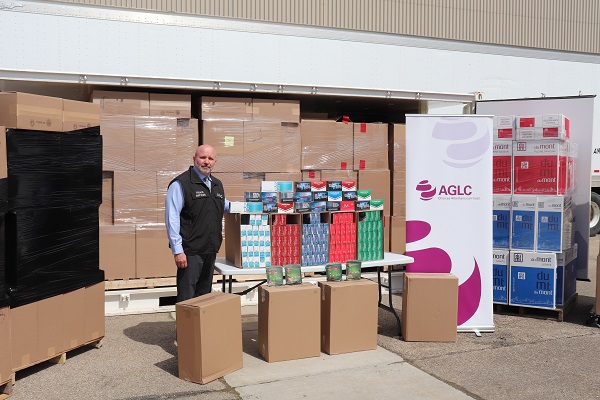
 Alberta7 hours ago
Alberta7 hours ago30 million contraband cigarettes valued at $25 million dollars seized in Alberta
-

 armed forces1 day ago
armed forces1 day agoTrudeau government has spent $10 million promoting DEI in the military as recruitment flounders
-

 illegal immigration2 days ago
illegal immigration2 days agoPanama’s Incoming President Wants To Shut Down His Country’s Most Treacherous Route For Migrants — But Will It Work?
-

 COVID-191 day ago
COVID-191 day agoMore victories for freedom as ArriveCAN charges dropped and fines reduced
-

 City of Red Deer2 days ago
City of Red Deer2 days agoCity Council paving the way for more house suites, backyard suites, tiny homes, and duplexes


